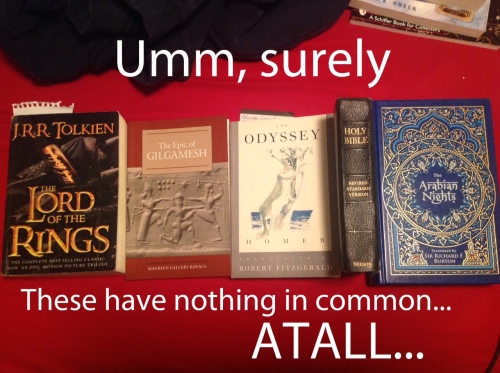Tolkien = Fantasy but Fantasy doesn’t necessarily = Tolkien
I heard one author say the other day that she was “yet another Tolkien imitator.” She had just come out with a fantasy novel, apparently complete with castles, swords, (time travel ok thats different sort of) and a map that could have come from page 1 of The Hobbit.
This is known as Medievalist fantasy, and was popularized and brought into the mainstream by Tolkien. It would be naive to underestimate his influence on succeeding generations.
I read the Lord of the Rings in elementary school, and grew up with Peter Jackson’s Rings trilogy. So I’m definitely not immune. I drew maps of fantasy worlds obsessively after reading Tolkien. I made up languages that were actually ciphers, but I didn’t know that. I wanted desperately to make a universe like his.
I certainly didn’t understand the unique circumstances surrounding Tolkien’s creative process. As a philologist, he studied languages (that’s what philologists do, I’m told). He was deeply invested in the state of English lit and English mythology, and was dissatisfied with it. So he set out to create his own. However, he made the languages first, and then the worlds and stories to fit around them. Not the other way around.
If I said the word FANTASY, what first comes to your mind? Swords & sorcery, castles, wizards, elves, dwarves, dungeons & dragons. Perhaps, perhaps not.
How about: The Arabian Nights. The Epic of Gilgamesh. The Bible. The Iliad & Odyssey.
All of the above have heavy fantasy elements in them. Fantasy is as old as literature itself. I think it’s time we started thanking Tolkien for what he’s done, and then politely shelving him, in search of more distant shores for ideas.
Tell me what you think.
